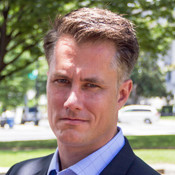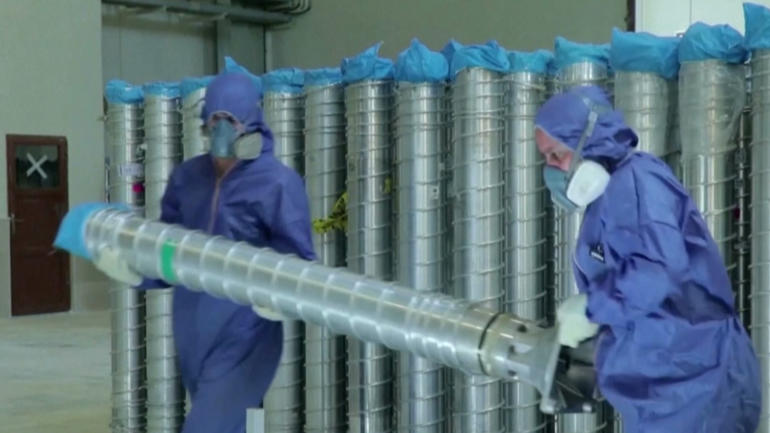Iran is set to expand its nuclear capabilities, injecting uranium gas into more than a thousand centrifuges at the Fordo research facility. This will turn the once-secret location into an active atomic site.
CGTN’ Jim Spellman reports.
The move further scales back the country’s commitments to the Iran nuclear deal, known as JCPOA, and potentially enhances Tehran’s ability to build a nuclear weapon.
Under JCPOA, Iran agreed not to pursue nuclear weapons in exchange for world powers lifting crippling economic sanctions. Despite Iran’s compliance, U.S. President Donald Trump withdrew from the deal last year.
His administration is now pursuing a so-called “maximum pressure campaign” of unilateral sanctions. Iran says if the U.S. lives up to its end of the JCPOA and lifts sanctions, it will reverse course.
“We are aware of their sensitiveness towards the Fordo facility and those centrifuges,” said Iranian President, Hassan Rouhani.
Nevertheless, whenever they fulfill their commitments, we will cut off the gas injection and won’t inject gas into these centrifuges anymore.
This step is reversible, too. At the same time, we cannot tolerate unilateral fulfillment of our commitments and no commitment from their side.”
In an interview on Fox Business News, U.S. Secretary of State Mike Pompeo defended the U.S. sanctions.
“They’re having a real impact. We need to continue to press. And we need the world to recognize that this is a regime that is still the world’s largest state sponsor of terror and presents a real threat,” said Pompeo.
European participants in the JCPOA have tried to hold the deal together despite the U.S. withdrawal.
“We urge Iran to reverse all activities that are inconsistent with its commitments under the JCPOA and to refrain from any further measures that would undermine the preservation and full implementation of the nuclear deal,” said European Commission Spokeswoman, Maja Kocijancic.
President Trump says he wants to negotiate a new, more expansive nuclear deal with Iran, one that would extend for a longer period of time and include Iran’s ballistic missile program. But Tehran says there will be no unilateral negotiations until Washington eases sanctions.
 CGTN America
CGTN America

